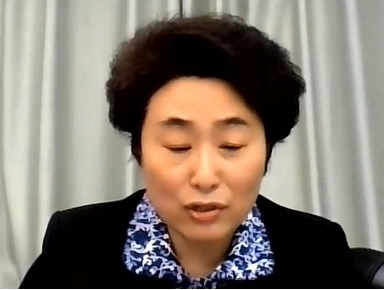
Patients receiving antiplatelet therapy following percutaneous coronary intervention (PCI) developed gastrointestinal (GI) injury regardless of the antiplatelet regimen used. This is according to the findings of the OPT-PEACE trial, which used a magnetically-controlled capsule endoscopy system (MCE, Ankon Technologies) to assess GI injury in PCI patients.
The study found that though nearly all patients receiving antiplatelet therapy developed evidence of abnormal GI mucosal findings on capsule endoscopy, those receiving DAPT followed by SAPT had less GI injury than those receiving continued DAPT.
Findings of the study were reported at the Transcatheter Cardiovascular Therapeutics annual meeting (TCT 2021, 4–6 November, Orlando USA and virtual) by Yaling Han from the General Hospital of Northern Theater Command in Shenyang, China and published simultaneously in the Journal of the American College of Cardiology (JACC).
GI bleeding is the most frequent major complication of antiplatelet therapy, but little is known regarding the predisposition to GI injury that occur with different antiplatelet regimens. In addition, the use of standard endoscopy in patients on antiplatelet therapy is limited due to risks such as bleeding.
In the OPT-PEACE trial, investigators utilised the MCE system that does not require discontinuation of antiplatelet therapy and has comparable accuracy to standard upper GI endoscopy. To determine the incidence and types of GI mucosal injuries in patients receiving SAPT or DAPT, repeated capsule endoscopy exams were performed at baseline, six months, and 12 months.
Between 13 July 2017 and 13 July 2019, 783 eligible patients at low risk for bleeding were enrolled following PCI and six months of DAPT. After a second capsule endoscopy, 505 event-free patients without GI ulceration or bleeding at both baseline and six months were randomised to aspirin plus placebo (n=168), clopidogrel plus placebo (n=169) or aspirin plus clopidogrel (n=168) for an additional six months at 28 Chinese centres. A total of 2,050 successful capsule endoscopy exams were performed during the study.
The primary endpoint was the incidence of gastric or small intestinal mucosal injury (erosion, ulceration, or bleeding) detected either by capsule endoscopy at six or 12 months or at any clinically-driven standard endoscopy. The study found that GI mucosal injury through one year was less with SAPT compared with DAPT (94.3% vs. 99.2%, p=0.02).
Ulcers were observed in 14.4% of patients on SAPT and 18.5% DAPT (p=0.30). Among 68 patients without any GI injury at randomisation (including no erosions), SAPT was associated with less GI injury (68.1% vs. 95.2%, p=0.01), including fewer new ulcers (8.5% vs. 38.1%, p=0.006), than DAPT. In addition, clinical GI bleeding between six and 12 months was less with SAPT compared with DAPT (0.6% versus 5.4%, p=0.001).
“The use of a novel magnetically-controlled capsule endoscopy system showed that nearly all low bleeding risk patients developed gastrointestinal injury during 12-month follow-up after PCI regardless of antiplatelet regimen,” said Yaling Han. “However, DAPT followed by SAPT resulted in less gastrointestinal mucosal injury and clinical bleeding. These findings are valuable for clinical decision-making on gastroprophylaxis and optimising antiplatelet therapy type and duration.”












